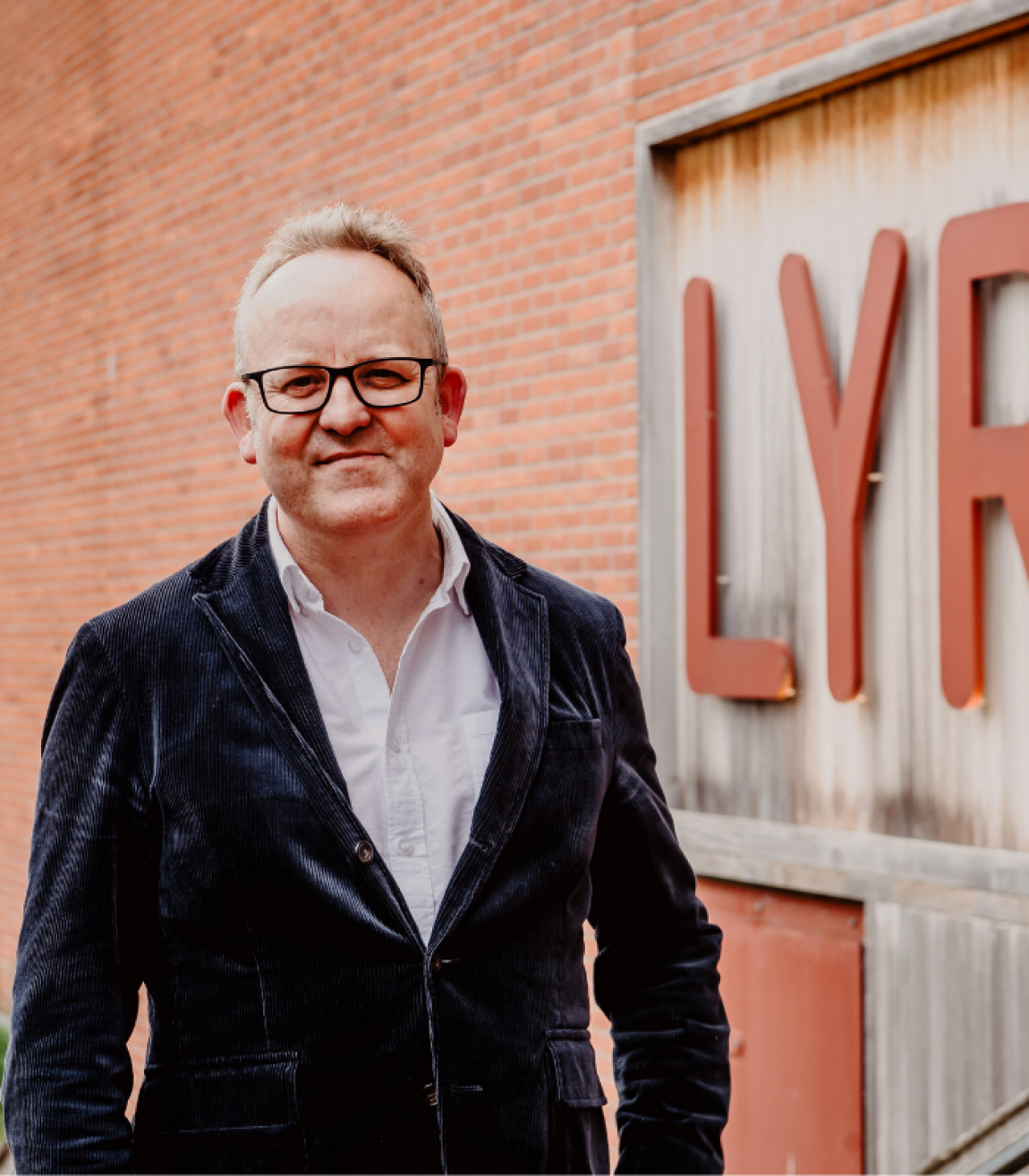Dear Friends,
Welcome back to the Lyric Theatre. We are delighted that we can once again open our doors again to you, our amazing audience.
It has been a long 17 months since the building closed. Since then, we have all gone through the various lockdowns, testings, isolation, working from home, zooming for work, quizzes, and zooming absent family members. Some of us have experienced heart-breaking tragedy in this time. Some have welcomed new members into their life. The world kept turning but in a different way.
Over this past year and a half, so many of us have felt a sense of displacement, perhaps a loss of social integration, a growing sense of isolation and anxiety if a stranger sneezed near us. And what is also certain now is we have to figure out how we keep going.
As theatres, we were the very first to voluntarily close our doors, and we are now the very last to be allowed to open up again. We do this with the highest safety guidelines in place, as you will see throughout the theatre. We open our theatres again to bring a sense of hope and to help battle our anxiety. If required that we close our doors again because the numbers are going up, then we will.
I am delighted that we are opening with Drama Studio, our Creative Learning department’s fantastic initiative to offer young people interested in theatre a chance to train and to experience a thoroughly rehearsed and professional production.
I am almost equally delighted that we are opening with a production of Dracula by Bram Stoker in a version by the superb Scottish poet Liz Lochhead.
Bram Stoker was born to a middle-class family in Dublin in 1847. That year became infamously known as “Black ‘47”, as it was the worst year of the famine. His mother, Charlotte, had memories of a cholera plague in her hometown in Sligo when she was a child. She would tell a young impressionable Bram about the undertaker all masked up and in black calling on her father’s door each day and asking if coffins were needed. She wrote an account of the plague at the request of her son years later and talked about how this vicious plague attacked every second house in the vicinity. In the end, five eights of the townspeople died. Some living were buried with the dead because no doctors or health staff were left to confirm or deny life. Some of these buried souls scratched and clawed their way back out of the ground giving rise to sightings of “the undead” on lonely country roads.
Bram Stoker went on to be the theatre manager of the Lyceum Theatre in London and worked closely with one of the most dynamic actors of the Victorian age, Henry Irving. It’s said he based the character of Dracula on the charismatic Irving. Henry Irving even went on to play Dracula in the theatre!!
Whatever the virus Covid-19 leaves us with in the end, one hopes a young, dynamic, imaginative artist will create a masterpiece out of this strange time. Just as Stoker did by creating the most infamous vampire ever known, Count Dracula.
To watch these young people engage imaginatively in a story that has its roots in a real virus from the 19th century and has been transformed into a world-wide phenomenon of fear by the sheer creative force of an Irish writer, gives one hope. Because people like being spooked in books, on films and in the theatre but, maybe, not in real life.
If you have bought tickets for the production this week, I hope you enjoy the show. Please stick around for a drink in the amazing Lyric bar afterwards and meet the dynamic young cast – in a socially distanced way of course.
If you aren’t coming to the theatre this week, we hope to welcome you back very soon.
Thank you, as ever, for all your support today and throughout the past 17 months.
Take care,
Jimmy Fay
